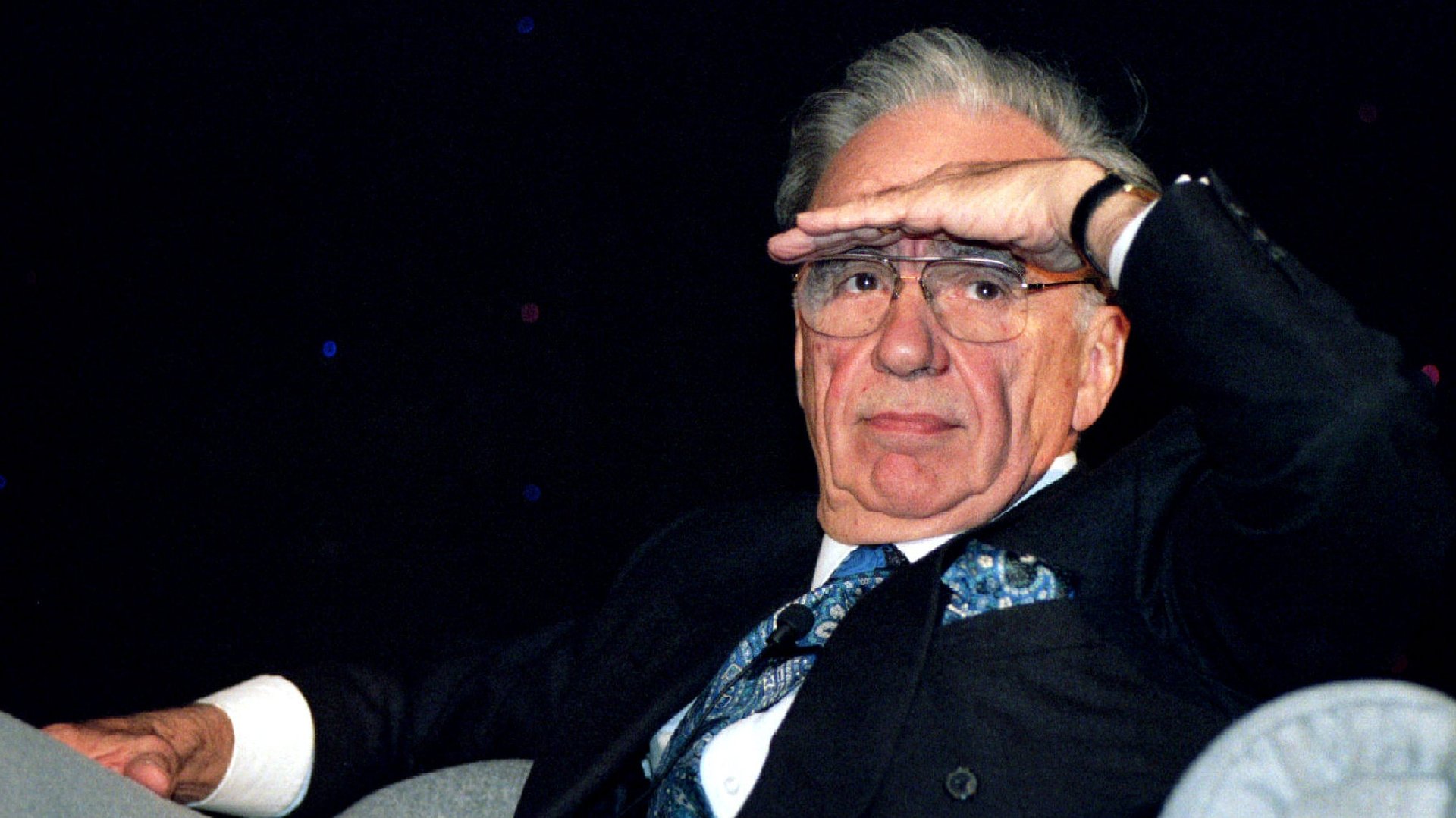America is looking to relax the rule that spurred Rupert Murdoch to become a US citizen
America, the land of the free, still has restrictions on who can own a broadcast TV or radio station. But the rules could soon be relaxed, and the implications could be far reaching.


America, the land of the free, still has restrictions on who can own a broadcast TV or radio station. But the rules could soon be relaxed, and the implications could be far reaching.
The country’s communications regulator, the FCC, will next month review rules in place in since the 1950s that restrict foreigners from owning more than 25% of a free television broadcaster or radio station. To get around this, Australian-born billionaire Rupert Murdoch in 1985 became a naturalized US citizen when he wanted to expand his media empire stateside. Murdoch bought Metromedia, the largest owner of independent television stations in the US at the time. (Even still, because his company, News Corporation, was headquartered in Australia back then, the purchase wasn’t fully cleared for another 10 years.)
The FCC has had the ability to waive the rules if it deems foreign investment to be in the public interest—but has generally been reluctant to do so. Mexican broadcaster Grupo Televisa’s ambitions to acquire Univision, America’s biggest Spanish-language broadcaster, have long been stifled due to the restrictions.
The Wall Street Journal reports that two of the FCC’s three commissioners have signaled their support for relaxing the rules. Loosening the limits has the support of the industry, and also both sides of the political aisle in Washington. Democratic senators Harry Reid and Chuck Schumer are both in favor, as long as a national security review remains in place.
The arguments in support of relaxing the laws, which many see as an anachronism, are compelling. Earlier this year, the FCC eased rules preventing foreign ownership in the wireless telecommunications sector, paving the way for Japan’s Softbank to buy struggling carrier Sprint for $21.6 billion. Its finances now shored up, Sprint is expected to invest significantly in upgrading its mobile network—a move that could create jobs , improve service for US consumers, and drive down mobile prices. Allowing foreigners to invest could help TV stations attract capital, at a time when audience fragmentation is creating doubts about broadcast business models.
Yet scrapping the rules could also spur further consolidation of broadcast television stations, creating uneasiness among media diversity advocates. Lobby group Free TV says 2013 has already been the biggest year for consolidation in the industry since 1999, with 213 stations changing hands, in deals totaling $10.3 billion. It’s concerned that increased consolidation is devastating community-based journalism, and ultimately, harming democracy.
In a report issued earlier this year, it argued that TV stations are benefitting from an explosion in political advertising and rising retransmission fees (these are the fees cable companies must pay free broadcasters to carry their content).
“Broadcasters aren’t investing these newfound revenues in newsrooms,” it said. ”The corporations that control our airwaves are instead using record profits to snap up more stations and position themselves to cash in on future elections and extract higher payments from cable customers.”